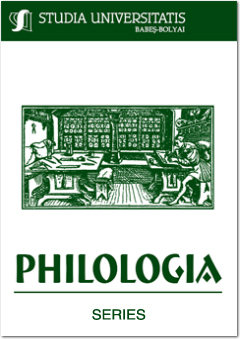LA “HISTORIA DE DUOBUS AMANTIBUS” FRA CLASSICISMI E VOLGARISMI
THE HISTORIA DE DUOBUS AMANTIBUS BETWEEN CLASSICAL AND VERNACULAR PHRASES
Author(s): Stefano PittalugaSubject(s): Language and Literature Studies
Published by: Studia Universitatis Babes-Bolyai
Keywords: Enea Silvio Piccolomini; Historia de duobus amantibus; short story; Néo-latin; italianisms.
Summary/Abstract: The Historia de Duobus Amantibus between Classical and Vernacular Phrases. Contrary to Boccacio, E. S. Piccolomini chose Latin to write his erotic short story, an astonishing Cento of all the Latin authors who treat Love in various manners: Plautus and Terentius for Comedy, Vergilius for Bucolic, Georgic and Epic, and Ovidius for Elegy and Epistle. But, in order to emphasize the truthfulness of facts, Piccolomini roots his narration in the socio-linguistic context of Sienna where he had studied under Professor Sozzini, the one who ordered this text to him. From a literary and stylistic point of view, the importance of the Italian language and culture is obvious: The Historia is inspired by Petrarca and Boccacio and Piccolomini’s Latin style is studded with Italian-like phrases. My purpose is to show the extent to which the Italian language, literature and culture are present in Piccolomini’s Historia and also to discover what this means in matters of linguistic choices.
Journal: Studia Universitatis Babes-Bolyai - Philologia
- Issue Year: 57/2012
- Issue No: 3
- Page Range: 253-260
- Page Count: 8
- Language: Italian

